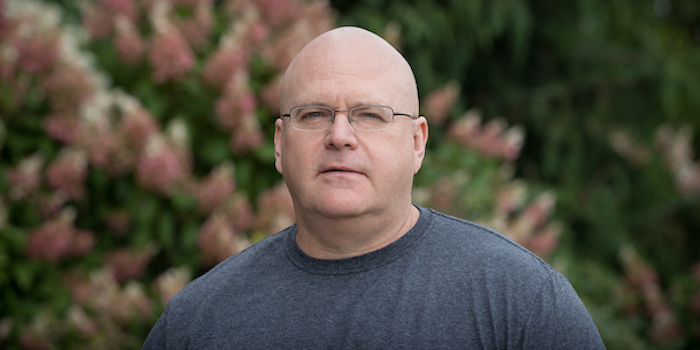How Does Climate Policy Slow Warming? Brian Beckage's New Paper Explains

BREE Researcher Brian Beckage, PhD, recently co-authored a study that may provide good news for the scientific community and the world at large: climate policy may be helping to slow the warming resulting from human-caused climate change.
The study, “
Determinants of emissions pathways in the coupled climate–social system,” was published in the February 2022 issue of
Nature. It concluded that climate policy and public perception of climate change is making a difference, possibly one that can keep the world from the very bleak 3.9 degree Celsius (7 degree Fahrenheit) increase in global temperatures that scientists predicted
in a United Nations report in 2019.
“We know that people respond, and we change our behavior in response to, for example, how climate is changing, what our social networks are doing, and the cost of alternative energy,” said Dr. Beckage in discussing the report.
In other words, the more the public knows about climate change, the more likely they are to do something about it.
Ambition and Policy The crux of the study is that most climate projections are static; they don't factor in how public policy can improve the outlook. “We can't forget the human capacity to react and adapt,” said Dr. Beckage.
Dr. Beckage and the rest of the research team ran 100,000 simulations that took various policies into account and found out that the darkest projections can be curbed if the public responds and adjusts to the climate crisis.
As Dr. Frances Moore, the lead author of the study, put it, “Climate policies will increase in ambition and associated emissions reductions will probably accelerate.” That means that the future is largely in the public's hands. There is still a deterministic element to human-caused climate change, so a human response can limit the damage done to the environment.
In the models run by the research team, public perceptive, the cost-effectiveness of clean energy, and other controllable aspects all played a role in the severity of warming over the next few generations. Hopefully, the public policy will get more ambitious and people will react.
Climate Change and Lake Champlain
While Dr. Beckage's paper did not come from the BREE project, his research with Vermont EPSCoR follows similar lines in seeing how public policy can have an environmental impact. Dr. Beckage was the co-leader of the BREE Climate Team, and also served as a member of the Integrated Assessment Modeling Team. The latter team used mathematical models to predict how various situations, from phosphorous runoff to extreme weather, can affect the health of the Lake Champlain Basin.
In addition to those two teams, BREE has an Ecological Systems Team and a Social Systems Team. Together, this allowed researchers at Vermont EPSCoR to analyze the Lake Champlain Basin area from multiple angles, viewing not only why harmful algae blooms form but also how public policy can help improve the situation.
Just like on the global level which Dr. Beckage's new paper discusses, public policy can have an impact on local water health. Through meetings with stakeholders, policymakers, and other groups that have a vested interest in the health of Lake Champlain, the BREE project helped to put in motion public policy changes that will hopefully keep the lake beautiful for many years to come.
Hopefully, official policy and public action will shape our future in a positive way.
